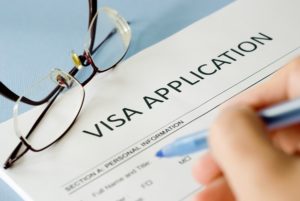
In a fraud case, the government must prove that someone misrepresented or lied about something with the intent to deceive, causing financial or legal injury to another party as a result. In many situations, the big question the government must answer before deciding to prosecute a fraud case is whether it can prove that the accused had the criminal intent necessary to satisfy the required elements for fraud. If you are facing fraud charges, you will require assistance from a professional DC defense attorney to fight for your rights in court.
Read on to learn more about how a DC federal fraud lawyer could be a powerful asset to you in your court proceedings.
Health Care Fraud
The federal government expends an enormous amount of resources to investigate health care fraud cases. As a health care provider, the potential consequences of a mere investigation for fraud are extremely serious and long-lasting. As with other white-collar offenses, those who are convicted have a strong likelihood to face prison time. Revocation of a medical license or being barred from future government reimbursement programs including Medicaid or Medicare could end a medical career.
The government often pursues health care fraud under two basic theories. The first theory involves health care providers who are accused of upcoding. An upcoding accusation involves using a different billing code for a procedure that pays more than the code justifies. The other theory involves providers who are accused of billing for procedures that were not performed at all or procedures for alleged fictitious patients.
Bankruptcy Fraud
 Bankruptcy allows for destitute businesses or individuals to wipe out debt and make a fresh start. The Department of Justice’s US Trustees Program monitors bankruptcy proceedings and refers suspected cases of fraud to the FBI and the US Attorney’s office. In bankruptcy fraud cases the accused is usually alleged to have filed for bankruptcy and lied, produced false documents, or otherwise tried to hide financial assets with the objective of preserving such assets from the bankruptcy process. However, as with all criminal investigations, anyone investigated, accused, and charged with bankruptcy fraud must be proven guilty beyond a reasonable doubt in a court of law. A hardworking attorney in DC could fight against federal fraud charges by building a compelling argument in the accused person’s favor.
Bankruptcy allows for destitute businesses or individuals to wipe out debt and make a fresh start. The Department of Justice’s US Trustees Program monitors bankruptcy proceedings and refers suspected cases of fraud to the FBI and the US Attorney’s office. In bankruptcy fraud cases the accused is usually alleged to have filed for bankruptcy and lied, produced false documents, or otherwise tried to hide financial assets with the objective of preserving such assets from the bankruptcy process. However, as with all criminal investigations, anyone investigated, accused, and charged with bankruptcy fraud must be proven guilty beyond a reasonable doubt in a court of law. A hardworking attorney in DC could fight against federal fraud charges by building a compelling argument in the accused person’s favor.
Mortgage Fraud
Mortgage fraud is a new focus of federal agencies that has attracted a lot of attention since the housing market crash of 2008 and the resulting economic crisis thereafter. Since the crash, the number of loan organizations has substantially decreased as a result of better underwriting standards while the number of delinquencies, underwater mortgages, and foreclosures has skyrocketed. Distressed loan organizations are sometimes accused of targeting homeowners who are desperately trying to save their home. This type of fraud involves loan refinancing and/or modification. The FBI’s Financial Institution Fraud Unit (FIFU) investigates several different types of mortgage fraud, including:
- Loan modification schemes
- Equity skimming
- Foreclosure rescue schemes
- Illegal property flipping
- Silent second mortgages
Anyone in DC facing these charges could potentially benefit from the help of a skilled federal fraud lawyer on their side to ensure that their legal rights are protected through all proceedings.
Sentencing in Fraud Cases
 Following the uproar that occurred after white-collar scandals such as WorldCom and Enron, Congress adjusted the sentencing guidelines to increase the recommended guideline ranges for individuals convicted of white-collar offenses to include fraud offenses. The Voluntary Sentencing Guidelines are only advisory, but it can potentially help a defendant and their DC lawyer overcome tough hurdles if the guideline range proves to be favorable for their fraud case.
Following the uproar that occurred after white-collar scandals such as WorldCom and Enron, Congress adjusted the sentencing guidelines to increase the recommended guideline ranges for individuals convicted of white-collar offenses to include fraud offenses. The Voluntary Sentencing Guidelines are only advisory, but it can potentially help a defendant and their DC lawyer overcome tough hurdles if the guideline range proves to be favorable for their fraud case.
There are a few key factors that can drive one’s potential sentence in a fraud case. One key factor is known as the loss amount, defined in Section 2B1.1 of the Voluntary Sentencing Guidelines. The guidelines indicate that the loss amount is the reasonably foreseeable financial loss one can predict from the accused’s fraudulent actions, not the actual money that someone lost or was made by those convicted. This definition can result in loss amounts that are much greater than the actual amount of money that was involved in the offense. There are several other characteristics of the offense that the guidelines contemplate can increase the offense level. These characteristics include but are not limited to the number of victims involved, whether sophisticated means were used, and if the individual convicted was in a position of trust.
Reaching Out to a Federal Fraud Attorney in DC
Regardless of the alleged crime, an experienced and aggressive DC federal fraud lawyer is essential if you find yourself targeted by the federal government. A reliable DC federal fraud lawyer can assist those facing fraud as well as a variety of other white-collar criminal charges, including those involving the Foreign Corrupt Practices Act (FCPA) and RICO matters. For more information on the best approach to take in your case, schedule an office consultation with a determined DC federal fraud lawyer who has a strong track record defending against allegations of fraud today.
